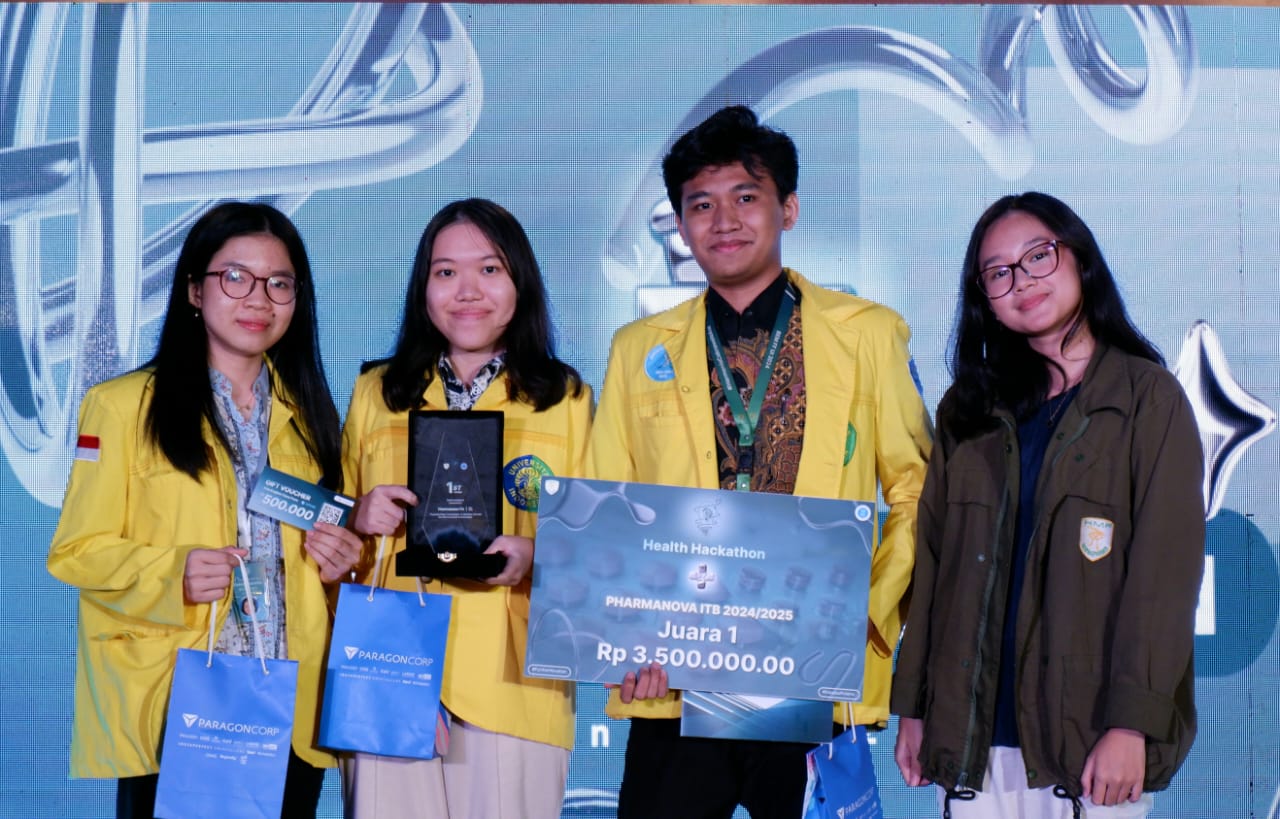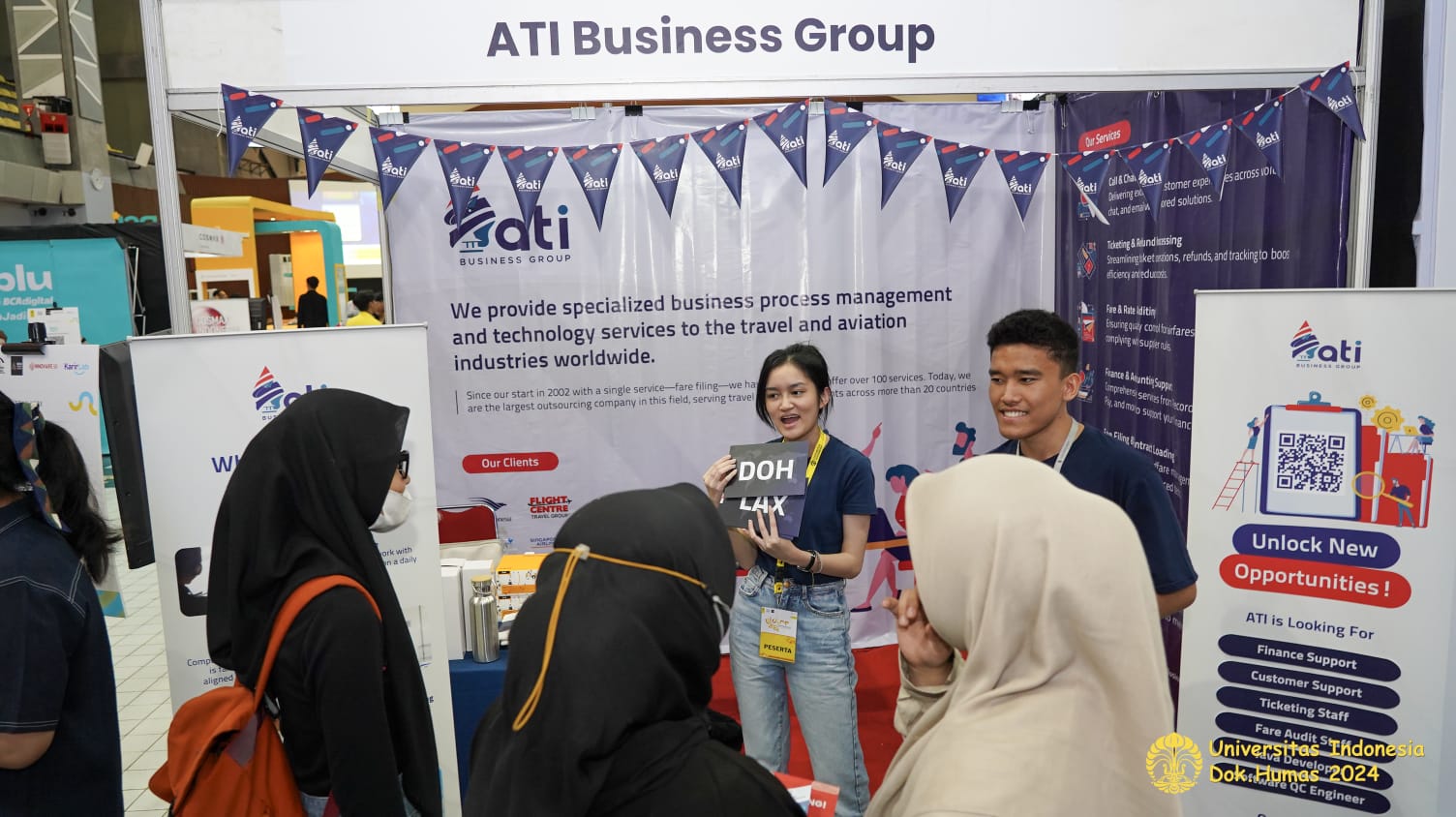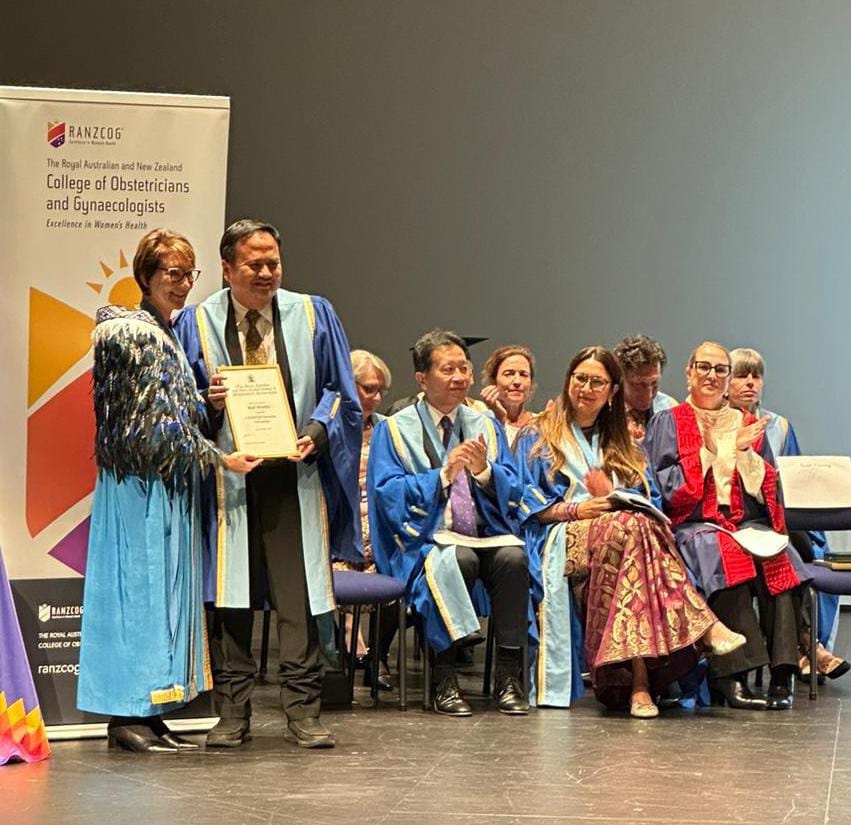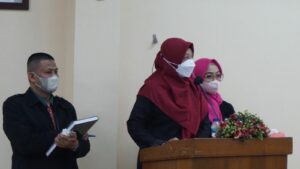
“Cyclophosphamide is a chemotherapy drug that is widely used in the treatment of various types of cancer, but in its use there is one side effect in the form of hemorrhagic cystitis in the bladder. Chinese petai seeds contain sulfidryl compounds that have the potential to be used as an alternative to prevent hemorrhagic cystitis through induction of glutathione production and metabolism,” said Dr. apt. Sri Wardatun, M.Farm, conveyed the background of her research at the doctoral promotion session held by the Doctor of Pharmaceutical Sciences program, Faculty of Pharmacy, Universitas IndonesiaFPharm UI).
In her dissertation presentation entitled “Analysis of 4-Hydroxycyclofosfamide and 3hydroxypropyl mercapturic acid after administration of Chinese Petai Seed Extract in Cyclophosphamide-Induced Hemorrhagic Cystitis Rats”, Sri analyzed 3-hydroxypropyl mercapturic acid in urine and 4-hydroxycyclofosfamide in plasma to assess the potential of Chinese petai seed extract in preventing hemorrhagic cystitis in cyclophosphamide-induced rats.
“To achieve the purpose of the analysis, optimization of the extracting solvent is carried out to obtain the maximum solvent concentration that can produce maximum sulfidryl compounds and minimum mimosine. Furthermore, extract strandarization, validation of analytical methods using KCKUT SM/SM, and analysis of compound levels in vivo so as to obtain the activity of Chinese petai seed extract,” said Sri.
The results of Sri’s research show that 70% ethanol is a solvent that produces extracts with the highest sulfidyl content and the lowest mimosine content in Chinese petai seeds that have been soaked for 24 hours. The 70% ethanol extract of Chinese petai seeds meets the quality standards of traditional medicine extracts. The method of analyzing 3-HPMA in urine and 4-hydroxycyclophosphamide in plasma using KCKUT SM/SM has been validated according to FDA, 2018 and EMA, 2011 and can be applied in in vivo analysis. Administration of 70% ethanol extract of Chinese petai seeds can increase the level of 3-HPMA in urine and does not affect the level of active metabolite 4-hydroxycyclophosphamide in plasma.
“The administration of Chinese petai seed extract has a positive effect on the results of the bladder histopathology test and on the hematological profile of rats. Chinese petai seed extract has the potential to be used as an alternative in preventing hemorrhagic cystitis in the use of cyclophosphamide,” Sri said at her doctoral promotion session on Wednesday (27/07).
After the presentation of the material and the presentation of her argument, Sri succeeded in obtaining a Doctorate in Pharmaceutical Sciences cum laude. As the promoter, Prof. Dr. apt. Yahdiana Harahap, M.S., hopes that the research conducted by Sri can be continued to help clinicians in overcoming hemorrhagic cystitis. “This research was raised because cyclophosphamide which is a chemotherapy drug still has many side effects, especially hemorrhagic cystitis in the bladder. The administration of Chinese petai seed extract has a positive effect on the results of hispatology and hematology tests, so it has the potential to be used as an alternative in preventing hemorrhagic cystitis in the use of cyclophosphamide. Ibu Sri has also developed a method of two biological matrices in plasma and urine which is then validated according to international guidelines, and it is very amazing,” said Prof. Yahdiana.
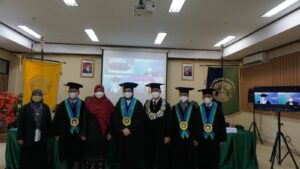
Acara promosi doktor yang dilaksanakan secara hybrid ini dipimpin Ketua Sidang, Prof. Dr. apt. Arry Yanuar, M.Si., dengan promotor Prof. Dr. apt. Yahdiana Harahap, M.S., serta Ko-Promotor, Prof. Dr. dr. Noorwati Sutandyo, Sp.PD., KHOM., dan Prof. Dr. apt. Abdul Mun’im, M.Si. Sementara itu, Tim Penguji sidang ini terdiri atas Dr. apt. Berna Elya, M.Si., Prof. Dr. apt. Hayun, M.Si., Prof. Dr. apt. Mochamad Yuwono, M.S., dan Dr. apt. Fadlina Chany Saputri, M.Si.

